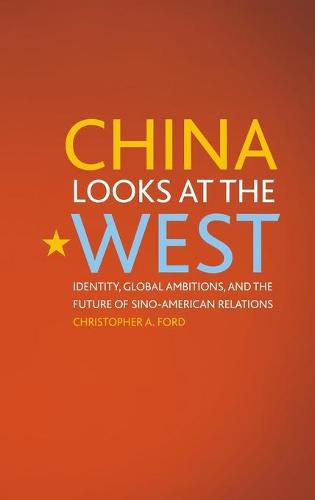Readings Newsletter
Become a Readings Member to make your shopping experience even easier.
Sign in or sign up for free!
You’re not far away from qualifying for FREE standard shipping within Australia
You’ve qualified for FREE standard shipping within Australia
The cart is loading…






Chinese leaders have long been fascinated by the United States, but have often chosen to demonize America for perceived cultural and military imperialism. Especially under Communist rule, Chinese leaders have crafted and re-crafted portrayals of the United States according to the needs of their own agenda and the regime’s self-image – often seeing America as an antagonist and foil, but sometimes playing it up as a model. In China Looks at the West, Christopher A. Ford investigates what these depictions reveal about internal Chinese politics and Beijing’s ambitions in the world today. In particular, Ford emphasizes the importance of China’s return to global preeminence in state images, which has become an essential concept in the regime’s self-image and legitimacy. He also examines the history of Chinese intellectual engagement with America, surveying the ways in which Chinese elites have manipulated attitudes toward the United States, and revealing how leaders from Qing dynasty officials to Mao Zedong and from to Hu Jintao to Xi Jinping have altered and reconstructed this narrative to support their own political agendas. Ford concludes the volume with a series of scenario-based alternatives for how China’s approaches to understanding itself and other nations may evolve in the future. Based on extensive research, including interviews with Chinese scholars and researchers, this groundbreaking study is essential reading for policymakers and readers seeking to understand current and future Sino-American relations.
$9.00 standard shipping within Australia
FREE standard shipping within Australia for orders over $100.00
Express & International shipping calculated at checkout
Chinese leaders have long been fascinated by the United States, but have often chosen to demonize America for perceived cultural and military imperialism. Especially under Communist rule, Chinese leaders have crafted and re-crafted portrayals of the United States according to the needs of their own agenda and the regime’s self-image – often seeing America as an antagonist and foil, but sometimes playing it up as a model. In China Looks at the West, Christopher A. Ford investigates what these depictions reveal about internal Chinese politics and Beijing’s ambitions in the world today. In particular, Ford emphasizes the importance of China’s return to global preeminence in state images, which has become an essential concept in the regime’s self-image and legitimacy. He also examines the history of Chinese intellectual engagement with America, surveying the ways in which Chinese elites have manipulated attitudes toward the United States, and revealing how leaders from Qing dynasty officials to Mao Zedong and from to Hu Jintao to Xi Jinping have altered and reconstructed this narrative to support their own political agendas. Ford concludes the volume with a series of scenario-based alternatives for how China’s approaches to understanding itself and other nations may evolve in the future. Based on extensive research, including interviews with Chinese scholars and researchers, this groundbreaking study is essential reading for policymakers and readers seeking to understand current and future Sino-American relations.